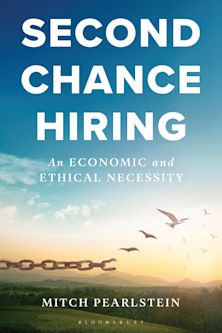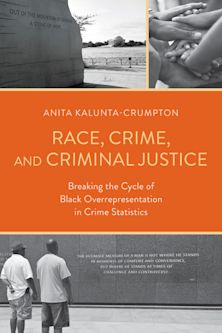- Home
- ACADEMIC
- Criminology
- Criminology - Other
- Social Inequality, Criminal Justice, and Race in Tennessee
This product is usually dispatched within 1 week
- Delivery and returns info
-
Free US delivery on orders $35 or over
You must sign in to add this item to your wishlist. Please sign in or create an account
Description
This book examines the national criminal justice system’s and the state of Tennessee criminal justice system’s policies in terms of how they balance the citizens’ need for prisons with the private sector's desire for profits and the policies’ effects on the incarceration rate of African American males in the state of Tennessee. There are important, often neglected, connections among prison sentencing, felony disenfranchisement, voting, and the continuing problematic issues of race in America, particularly in Tennessee. This state serves as a representative case study from which to examine local, state, and national criminal justice systems, disparate outcomes, and social inequality. The book therefore investigates ethically questionable public-private business relationships and arrangements that contribute to socially-constructed economic policy instruments used to fulfill conservatives and white supremacists’ objectives for white domination in Tennessee. Through mass incarceration and felony disenfranchisement, African Americans—in particular, African American males—have been discriminated against and systematically excluded from political participation, employment, housing, education, and other social programs. This book is grounded on the Racial Contract Theory and Racial Group Threat Theory (Racial Threat Theory or Group Threat Theory). The Racial Contract Theory is used to show how racism itself is an intentionally devised, institutionalized, political arrangement of official and unofficial rule, of official and unofficial policy, socioeconomic benefit, and norms for the preferential distribution of material wealth and opportunities. The Racial Group Threat Theory is employed to demonstrate how growth in the comparative size of a subordinate group increases that group’s capacity to use democratic political and economic institutions for its benefit at the expense of the dominant group.
Table of Contents
2. Historical Context of African American Inequality in Tennessee
3. Competing Perspectives on Social Inequality, Criminal Justice, and Race in the United States
4. African American Disenfranchisement in Tennessee
5. Profit-Seeking Motives and Racist Policy in Tennessee
6. Summary, Conclusions, and Policy Recommendations
Product details
| Published | Dec 21 2017 |
|---|---|
| Format | Hardback |
| Edition | 1st |
| Extent | 148 |
| ISBN | 9781498559201 |
| Imprint | Lexington Books |
| Illustrations | 2 Graphs, 11 Tables |
| Dimensions | 9 x 6 inches |
| Publisher | Bloomsbury Publishing |
About the contributors
Reviews
-
Fosten’s Social Inequality, Criminal Justice, and Race in Tennessee: 1960-2014 goes beyond the emotional dimensions of his controversial topic to present a well-researched, reasoned and credible argument that the post-civil rights era Tennessee justice system is playing a major role in the civil disenfranchisement of a significant number of the state’s African-American males, which in turn is leading to what he terms a “civil death” for a portion of the electorate. . . . What is most powerful about [the book] is the manner in which Fosten delivers a well-researched, extensively documented, honest, thought-provoking, and accessibly written study. He speaks “truth to power” using his credibility as a researcher, his logically arranged discussion points, and his ability to not shy away from the dark reality of his subject matter. Fosten’s book is a rich resource and a significant research study that serves as a strong indictment of the Tennessee justice system.
Arkansas Review
-
Gerald K. Fosten confronts one of the most pressing civil and human rights issues of our time in his focus on the politics of race, political economy, and criminal justice policy in Tennessee. . . . The political and moral significance of the book is substantial.
American Journal of Sociology
-
Coming on the heels of the Charlottesville white supremacist violence, Social Inequality, Criminal Justice, and Race in Tennessee, 1960–2014 is timely. Additionally, the theoretical and methodological grounding of the empirical evidence presented in the book is scholarship at its effulgence.
Abdul Karim Bangura, American University Center for Global Peace
-
The book is well-researched, with updated and comprehensive bibliography on the subject, and certainly will add to scholarship in the field of race/racism and the U.S. criminal justice system. It is a must read by scholars, policy makers, and concerned political leaders interested in addressing institutional racism and how best to improve the ‘perverted’ criminal justice that leads to black inequality, political exclusion, and economic disenfranchisement.
Benjamin Arah, Bowie State University


































